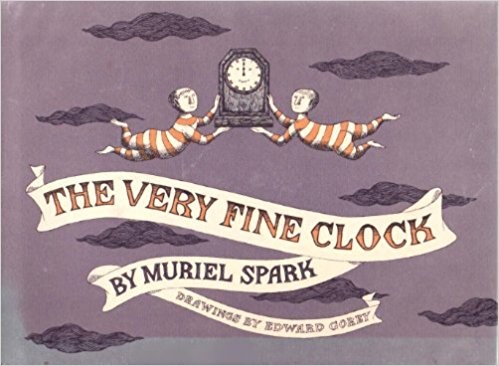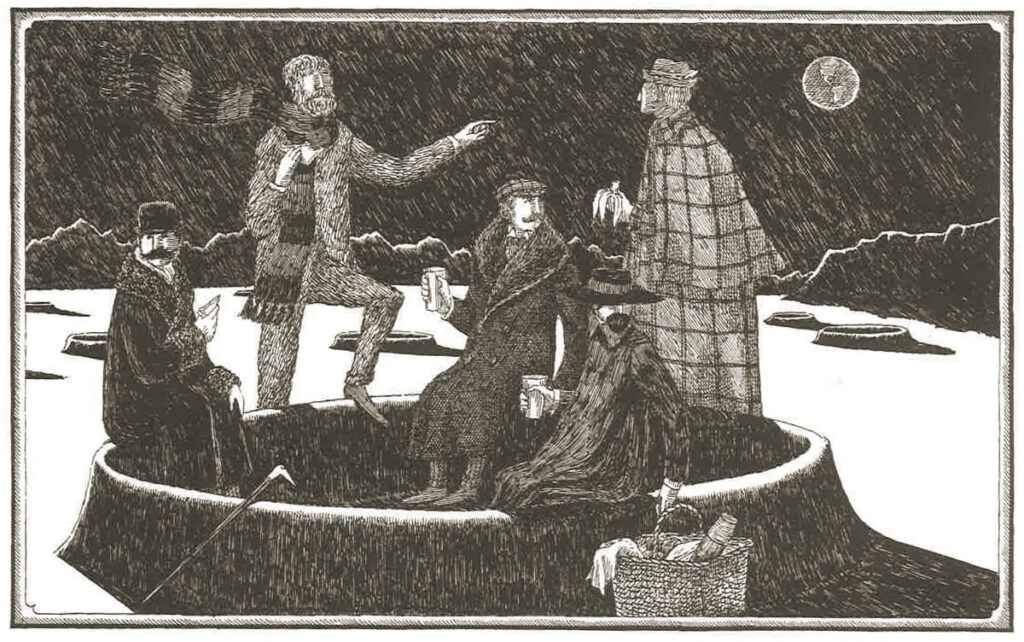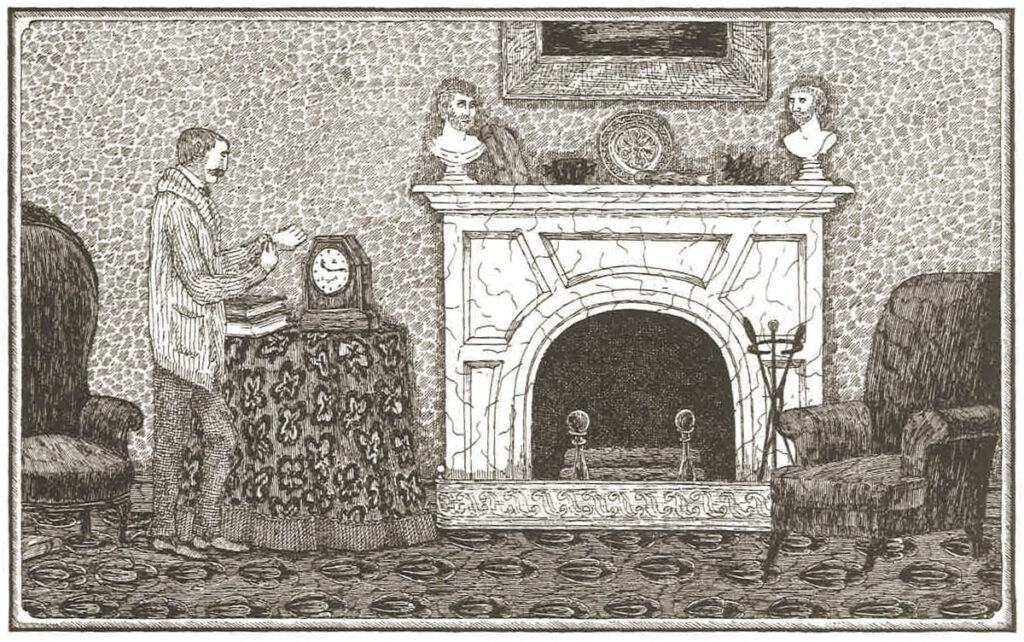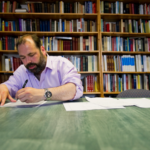Only four months away from the centenary of Muriel Spark’s birth, SELCIE celebrates her little-known children’s novel.
Gerard Carruthers guides us through its thoughtful quirkiness, complete with illustrations by Edward Gorey…

Less well-known than Muriel Spark, the writer of novels or the short-story writer, is Spark the poet, Spark the writer of drama. Least well-known of all is Spark the children’s writer: she produced only one short book for children in the late 1960s, The Very Fine Clock. The text has the feel of the 1960s film industry’s take on the Victorian or Edwardian period. Think, for instance, George Pal’s The Time Machine (1960) or Lionel Jeffries’s The Railway Children (1970) for the general vibe. It is a genteel, moral tale written for the clever eight year-old who can get his or her reading-head (and tongue) round names like ‘Professor Sturge Baldwin Parker’ or ‘Professor Maximilian Rosmini’. These are two of four professors who visit the home of the central protagonist, Ticky, every week to confer with the Swiss clock’s owner Professor John on a range of profound matters. Out of goodness and in appreciation of his precise time-keeping, the professors come up with a proposal for elevating Ticky’s status and out of goodness Ticky refuses. Indubitably, he is a very fine clock.

With rather gorgeous black and white illustrations by Edward Gorey (1925-2000), which are sometimes intriguingly arch, The Very Fine Clock is to be savoured by thoughtful kids. The only real places the text is dated is in the stereotypical depiction of the kitchen clock who ‘always lets her tongue run away with her’ and of academic life where ‘Professor John goes off in the morning to sit all day in his professor’s chair at the university.’

This post written by Gerard Carruthers, University of Glasgow
Gerard Carruthers FRSE is Francis Hutcheson Professor of Scottish Literature at the University of Glasgow. He is one of the organisers of the Muriel Spark Centenary Symposium, 1st & 2nd February 2018, a joint venture between the National Library of Scotland and the University of Glasgow.




Hi there can anyone join ? Id be delighted….check my childrens work
http://www.jjacquir.wixsite.com/mysite/blog
Thanks for your time
Many thanks for this, Jacqui, and for the website link.